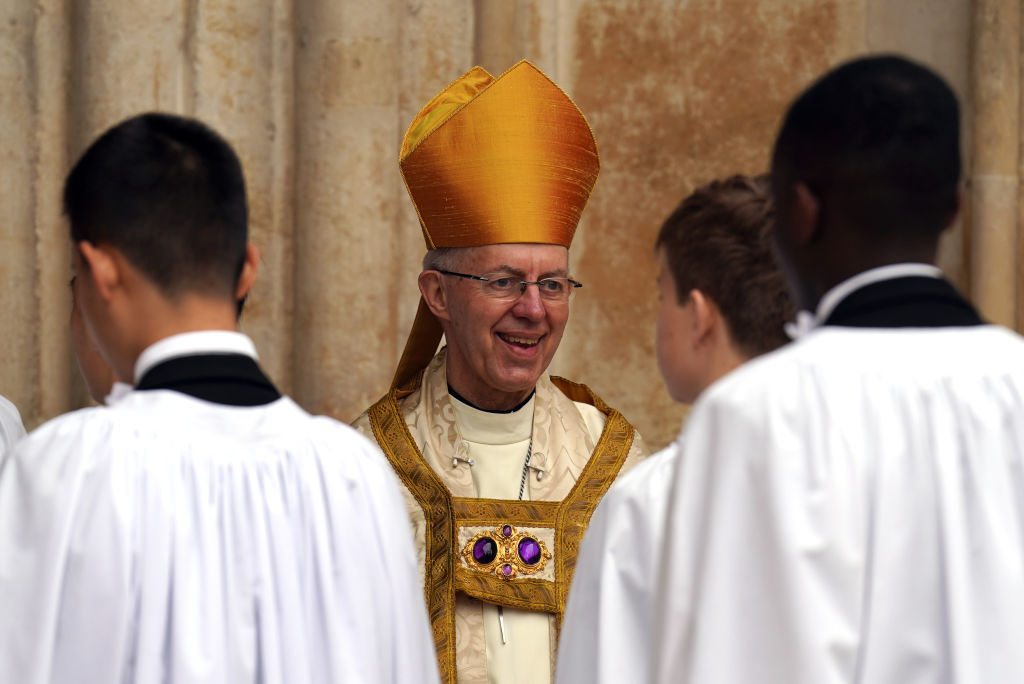Will there be more resignations following the departure of Justin Welby as Archbishop of Canterbury? The Church is, as on everything else, split on the issue, with some bishops saying that there needs to be wider accountability, and the Archbishop of York Stephen Cottrell saying that no more resignations are necessary. Given part of the criticism of the Makin report that triggered Welby’s departure was that he did not ensure that others performed their responsibilities around trying to stop Smyth, it would be odd for there not to be some wider ramifications.
The report repeatedly refers to Church officers knowing of the abuse that Smyth was still perpetrating, but not reporting it to the police. It also criticises the overall response to the victims, saying it was not ‘trauma-informed’, which means they were often re-traumatised in the process of disclosing what had happened to them and trying to seek justice. It names the then Bishop of Ely Stephen Conway as someone who did take initial action in writing to church leaders in South Africa but did not follow up on what he felt was a brief response which suggested little action would be taken. Welby’s personal chaplain Jo Bailey Wells received a referral from Conway about Smyth, but failed to follow it up with the police. One minister, Sue Colman, has been asked to step back from her responsibilities and her husband Jamie Colman has also been told he can no longer volunteer after both were named in the report as being aware of the abuse but continuing to support Smyth.
There is a difference between individuals taking responsibility for their actions in resigning – or being forced to take responsibility at least by being removed – and a system changing so that this kind of safeguarding failure and cover-up cannot happen again. This difference is often overlooked: it is assumed that a change of personnel in some way guarantees that things will be different, even if the structures that allow abusers to slip through remain. An important paragraph in the Makin report is the one that warns: ‘It could be argued that the church, as it is currently constituted, will not be able to fully guarantee that robust safeguarding policies can be in place’. It says change can only be assured by ‘radically changing the structures and connectivity within the church’. It also says there needs to be an independent body to provide external oversight of safeguarding.
All of this is essential, and while the review acknowledges that things have improved since 2013, the church has not yet implemented the recommendations of the independent inquiry into child sexual abuse which include mandatory reporting of allegations of abuse to authorities including the police. This did not happen with Smyth, and there may continue to be cultural problems within the Church of England which militate against it even when it is mandatory. One of the really striking findings in Makin is that the clergy and other senior Christian figures who knew for years about what Smyth was doing but never passed that onto the police kept their knowledge to a tight circle of colleagues because they thought this was essential for their important work to continue. Their argument was always that no matter the wrongs of an individual, the gospel work they were doing through the camps was more important because it was about saving people for eternity.
Of course that is nonsense but it is also a fascinating misreading by these very revered and respected figures of their relationship to the God they worshipped. They seemed to think their God was so small that he relied on them to carry on his work, rather than that he could do just fine without them. In essence, these (mostly) men made themselves bigger than God. So it is not just a structural issue, but a theological one, one that will involve a lot of chastening soul searching in the literal sense for those still working in this world.








Comments